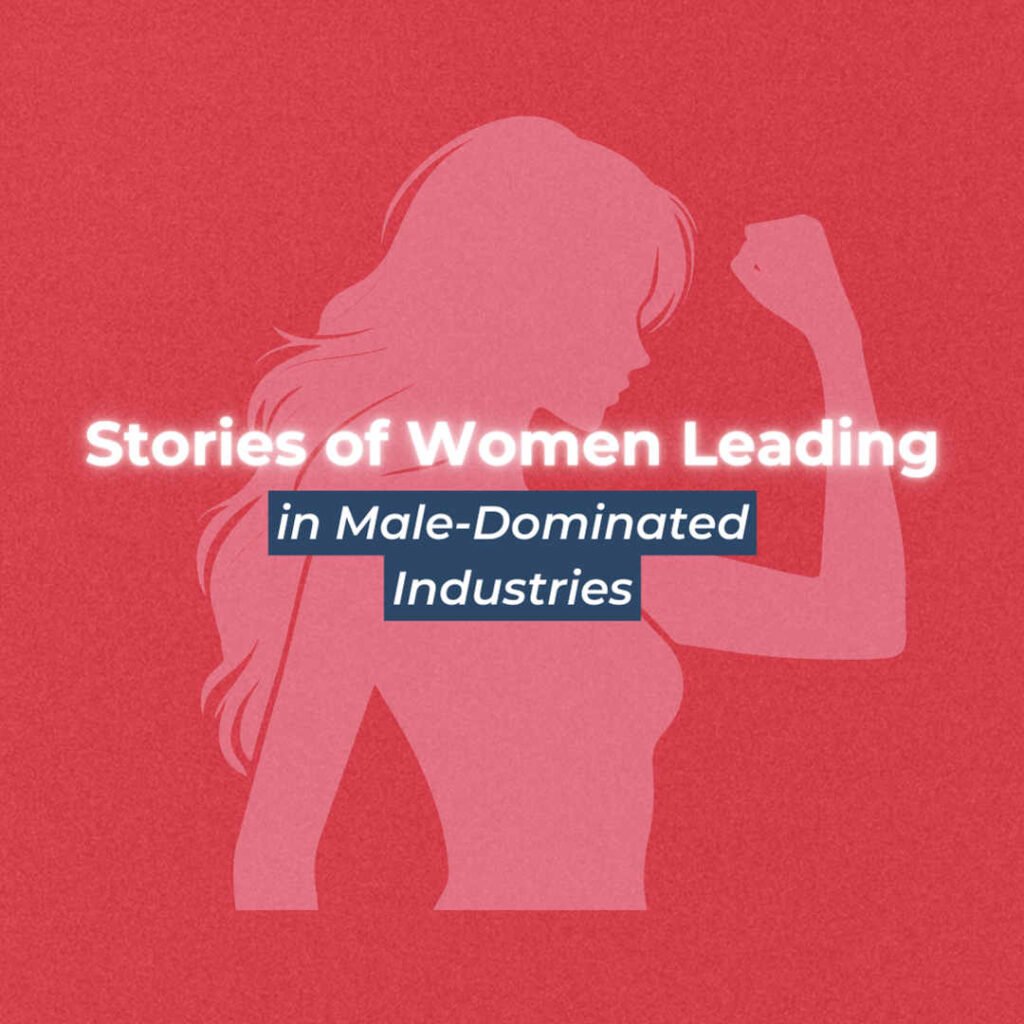
Women’s Empowerment: Breaking Barriers, Shaping the Future
1️⃣ Understanding the Struggles Women Face in the Workplace
- Gender Pay Gap: Statistics, real-life stories, and why it persists.
- Glass Ceiling: The invisible barrier to leadership roles.
- Workplace Harassment: From microaggressions to overt discrimination.
- Work-Life Balance: Societal expectations of caregiving vs. career growth.
- Limited Access to Mentorship and Networking: Why women miss out on critical career advancement opportunities.
2️⃣ Milestones Achieved: A Celebration of Progress
Global achievements in politics (e.g., women heads of state), STEM, entrepreneurship, sports, and arts.
Landmark moments:
- Women’s right to vote (suffrage movements).
- Equal pay legislation.
- #MeToo movement and the fight against workplace harassment.
Regional achievements: Women changemakers from your own community or country.
3️⃣ Inspiring Women Who Have Broken the Glass Ceiling
- Profiles of trailblazers:
- Indra Nooyi: Former CEO of PepsiCo.
- Kamala Harris: First female U.S. Vice President.
- Kalpana Chawla: Aerospace engineer and astronaut.
- Falguni Nayar: Founder of Nykaa.
- Your own examples: Local women leaders, entrepreneurs, and innovators.
- What we can learn from their journeys: resilience, vision, and commitment to change.
4️⃣ Challenges Women Continue to Face – And How to Overcome Them
- Persistent barriers:
- Gender stereotypes.
- Lack of support systems.
- Unequal opportunities.
- Solutions and actions:
- Advocating for mentorship programs and inclusive workplace policies.
- Promoting STEM education and entrepreneurial support.
- Encouraging male allies to join the movement.
- Building support networks and peer mentorship for women.
5️⃣ Conclusion: A Collective Call for Action
- The power of sisterhood and solidarity.
- How individuals and organizations can contribute to women’s empowerment.
- The importance of creating a world where women don’t just survive—but thrive.
It’s A Man’s Man’s Man’s World
Women face various challenges to break into multiple industries. Deep-rooted social conditioning, balancing work and home, unconscious biases, and a lack of appropriate mentorship hinder the growth of women. Studies have shown that the journey from entry-level positions to senior roles is filled with obstacles for women. These invisible barriers that hold women back from reaching their full potential are referred to as the glass ceiling.

Breaking the Boys’ Club
Women have long been challenging gender norms and stereotypes, pushing against the entrenched barriers of the so-called “boy’s club” mentality in the corporate world. Despite persistent challenges, there are signs of meaningful progress.
A glimmer of hope emerges in the numbers: women’s representation on boards has tripled from 6% in 2013 to 18.3% in 2023. The latest AIMA-KPMG Report further highlights this shift, revealing that 83% of surveyed organizations in 2024 reported a higher number of women in leadership roles compared to a decade ago. Additionally, 49% of organizations noted a decline in the dropout rate of women from leadership positions—a crucial indicator of improving retention.
These changes have been bolstered by key regulatory frameworks, such as the Companies Act of 2013, which mandated that certain classes of companies must have at least one woman director on their boards, and SEBI’s 2014 rules, which capped independent directors’ tenures at two consecutive terms (10 years) to encourage diversity and fresh perspectives. Together, these measures have been instrumental in driving gender diversity and leadership inclusion within India’s corporate landscape.
Debjani Ghosh

Debjani Ghosh: Pioneering Change and Empowering Women in Corporate India
Debjani Ghosh made history as the first woman to be appointed President of NASSCOM, becoming a trailblazer in India’s technology sector. As a key driver behind the “Think Digital, Think India” strategy, she has played a crucial role in strengthening India’s digital capabilities and global competitiveness.
Ghosh’s contributions have been widely recognized. In January 2018, she was honored by the President of India as part of the prestigious ‘First Ladies’ program, a testament to her groundbreaking achievements.
Yet, her journey hasn’t been without challenges. Ghosh has often spoken candidly about her experiences as the only woman in boardrooms and seminars, facing what she calls the ‘five-minute challenge’—the moment when condescending looks greet her at all-male meetings. Rather than being deterred, she urges women to seize such moments as opportunities to assert their expertise and command respect.
A passionate advocate for women’s empowerment, Ghosh emphasizes the importance of mentorship and support networks in the corporate sector. She credits a pivotal phase of her own career at Intel to the mentorship of another woman leader, underscoring how women supporting women can be a catalyst for change.
Debjani Ghosh’s story is a powerful reminder that while barriers remain, they can be broken with resilience, expertise, and solidarity.
Naina Lal Kidwai
Naina Lal Kidwai: A Trailblazer in Finance and a Champion for Women in Business
Naina Lal Kidwai stands as a pioneering figure in India’s finance and business landscape. She holds the distinction of being the first Indian woman to graduate from Harvard Business School with an MBA—a remarkable achievement that paved the way for her groundbreaking career.
Kidwai has held key leadership positions at prestigious global institutions, including Morgan Stanley and HSBC, where she became the first woman to head the bank’s India operations. Her influence extended to the policy arena when she became the first woman president of the Federation of Indian Chambers of Commerce and Industry (FICCI).
Her remarkable contributions have been widely recognized. Among her many honors are the Padma Shri award and the ALL Ladies League’s Delhi Women of the Decade Achievers Award, both celebrating her impact on the industry and society.
A vocal advocate for gender diversity and women’s empowerment in the corporate world, Kidwai has spoken candidly about the unique challenges women face in leadership. Reflecting on her own journey, she noted that women who began their careers in the 1980s often felt like “fish in a bowl”—constantly under scrutiny, as if people were waiting for them to fail. Through conversations with over 30 women CEOs, Kidwai observed a common thread: the relentless pressure to work twice as hard just to be heard, to be understood, and to find their place at the table.
Kidwai’s story is a testament to resilience, excellence, and advocacy, inspiring the next generation of women leaders to break barriers and forge their own paths.
Mallika Srinivasan
Mallika Srinivasan: A Visionary Industrialist and Champion for Women in Leadership
Mallika Srinivasan is a distinguished figure in India’s industrial landscape, known for her visionary leadership and dedication to social impact. A graduate of the prestigious Wharton School of Business, University of Pennsylvania, where she earned a place on the Dean’s Honor List, Srinivasan has consistently broken barriers and redefined possibilities for women in business.
As the Chairman and Managing Director of Tractors and Farm Equipment Limited (TAFE), she has spearheaded the company’s remarkable growth, diversifying operations into sectors such as tractors, farm machinery, diesel engines, and generators. Under her leadership, TAFE has become a global mass manufacturer, strengthening India’s footprint in the agricultural and industrial sectors.
Srinivasan’s achievements have earned her widespread recognition, including the Entrepreneur of the Year award by Ernst and Young and Woman Leader of the Year by Forbes India. She was also featured in the Forbes Asia list of Top 50 Asia’s Power Businesswomen, a testament to her influence and impact.
Beyond her corporate success, Srinivasan is deeply committed to philanthropic causes. She actively supports Sankara Nethralaya, a leading eye care institution, and has contributed to educational and healthcare facilities in Alwarkurichi, Tirunelveli district, South India.
Srinivasan has been an outspoken advocate for gender diversity in leadership, emphasizing the need for more women in decision-making roles and addressing the challenges women face in traditionally male-dominated sectors. Her journey is a powerful example of how vision, perseverance, and purpose can reshape industries and inspire change.
The Long Journey Ahead

These trailblazers are undoubtedly setting the stage for more women to step into leadership roles. Encouragingly, new female leadership hires in Indian companies have grown significantly since 2016. However, a recent LinkedIn report highlights a persistent challenge: while more women are entering the workforce, the leadership gap remains stubbornly wide.
The report underscores that women face systemic obstacles when it comes to advancing into senior positions in Indian organizations. Despite the progress made, the path to leadership is not yet equitable.
To bridge this gap, tangible and sustained efforts are essential. Key among these is the creation of mentoring and sponsorship programs, which can provide aspiring women leaders with the guidance, visibility, and opportunities they need to thrive. It is only through such deliberate and collective action that we can truly move the needle towards gender parity in leadership.
